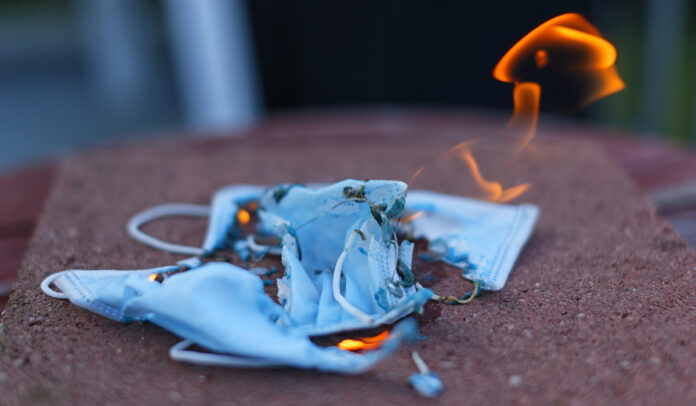It’s Monday, so I’m going to talk about COVID-19, specifically the state of America now that the latest surge, blamed on the Delta variant, has thrown us back into where we stood in mid-November. Last November, people panicked. This year, the reaction is ho hum.
I think the government is focusing its messaging on the need for more vaccinations because it allows them to blame the populace for rising numbers. I think the media are ignoring COVID not because we are sick and tired of hearing about it, but because they don’t want to pile more bad news on the Biden Administration. Both are avoiding talking about possible treatments because it might make Trump look good. After all, he was recommending some of the same treatments a year ago that other countries are adopting today.
What will they do when they force more than 90 percent vaccine compliance and we still get new variations and more breakthrough cases? Maybe they will go back to blaming China, which is no doubt where a good part of the initial blame lies.
The Numbers
As I reported a couple days ago, more than 100,000 people are hospitalized because of COVID. Hard hit states are short of ICU beds, running low on oxygen, and more patients are younger than in previous waves.
The number of COVID-19 patients who die every day has doubled in the past two weeks, to more than 1,300. Anecdotal evidence from medical personnel is that Delta deadlier than the earlier virus and kills unvaccinated patients faster. This news is going unreported by most of the mainstream media, probably because Fauci or another government mouthpiece hasn’t said so. We should note that a lack of reporting doesn’t make it untrue; the opposite may be true.
There have been 38.8 million cases of COVID-19 reported in the U.S. and 216.4 million worldwide. They suspect actual cases are far higher. Over 5 billion doses of the vaccine have been administered, but it doesn’t seem to do much good. Waves of illness continue to and new variations continue to arise..
Side Effects and Unintended Consequences
So many of the problems we face today are because of COVID-19 and the globe’s reaction to it: inflation, food shortages, high unemployment, chip shortages, rising car prices, the real estate market boom, crowded ports and backed up shipments, etc.
As COVID cases rise around the world, more countries are shutting down. More factories are ceasing production, and more ships are unable to be loaded, unloaded, or leave port in a timely manner. COVID-19 has broken the global supply chain, and it might take years to put it back together.
It has also broken human rights. They have locked more humans up due to COVID-19 than by any dictator in history did. More freedoms have been curtailed in the past two years than in the past two decades.
You know what makes it even worse: too many people don’t care. As long as their streaming service still functions and the government checks keep coming, they don’t care. More evidence that we may be headed for a collapse.
You May Be on Your Own
Fixing this busted system is going to be a long time coming. Until then, your best bet is to operate outside the system and be prepared to operate when there is no system.
Here, in as few words as possible, is a crash course on how you can survive an economic or societal collapse:
- Be as self-sufficient as possible before the collapse, so you are used to it. This might entail moving to s a safer location with more land and less population density. There may come a day when you want to have a low profile and be hard to find.
- Buy and stockpile food, ammunition, medication, and consumables. Use cash or crypto instead of traceable electronic payments. Stop buying stuff you don’t need but society expects you to own. Concentrate instead on what you need to survive.
- Build your skills and knowledge. Learn and train in skills that will have value post collapse, like small engine repair, diesel mechanic, EMT/Paramedic, midwifery, distilling, brewing, farming, shooting, blacksmithing, McGyvering, etc.
- Start a garden and stock seeds. If you lack the room, buy what you will need to grow sprouts or microgreens.
- Consider raising rabbits, chickens or other small livestock.
- Find and form an association with like-minded people. You might need them one day in the future.
What are you waiting for?








